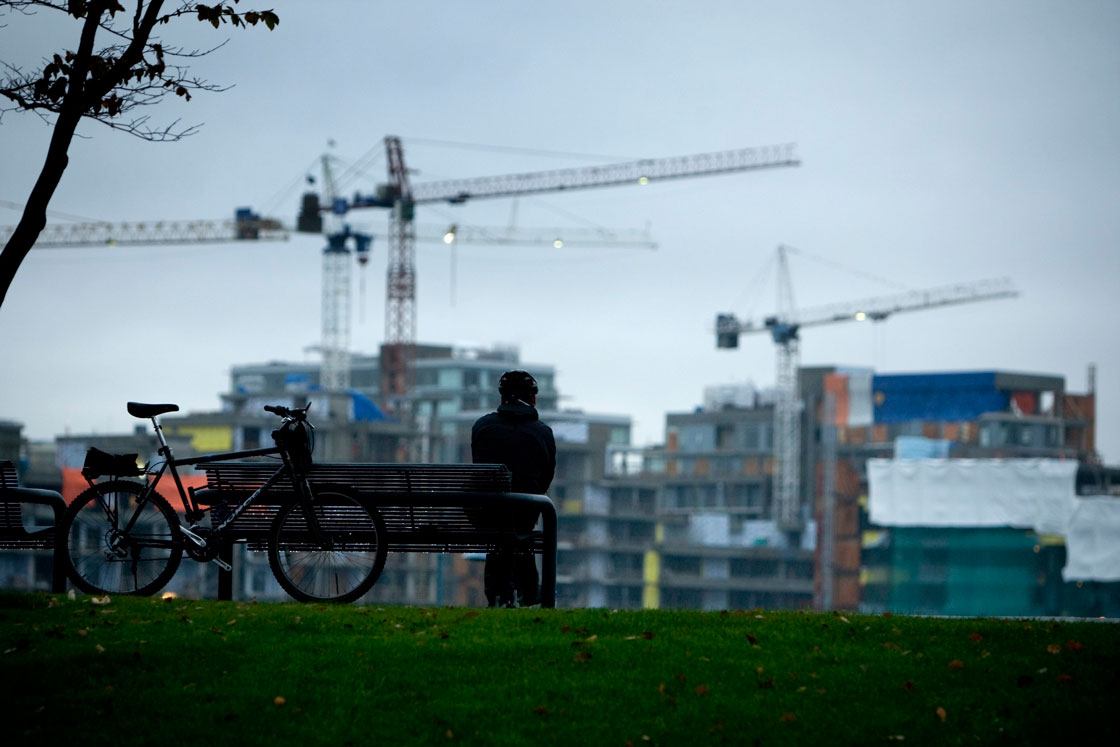Soaring prices in Toronto and Vancouver are preventing homeowners from upgrading entry-level homes, according to a TD Bank report, leading to “buyer gridlock” in two of the country’s hottest real estate markets.

TD’s chief economist, Beata Caranci, compares the two housing markets of Vancouver and Toronto to how things might look on a Monopoly board.
“Baltic Avenue, once considered one of the most affordable, is now fetching the price of St. James Place,” Caranci said in a recent report. “Ultimately, Toronto and Vancouver are moving the way of many international cities, where land constraints and population growth forces residents out and up. Out into suburbs and up into condominiums, be it ownership or rental.”
READ MORE: Taming of hot housing market Metro Vancouver a divisive issue
Those who previously bought an entry-level home with the intention of eventually “trading up” now face strong price appreciation of homes that would require taking on a hefty mortgage or eating into savings in order to buy despite the value of their current home, TD said.
“Taking into account other costs associated with selling, financially it makes more sense to stay put and/or renovate,” said Caranci. “If this sounds familiar, you have a case of buyer’s gridlock.”
Last week, the Municipal Property Assessment Corp. announced that property values across Ontario increased 18 per cent between 2012 and 2016, or 4.5 per cent a year on average. In Toronto, property values for single-family homes jumped 36 per cent since 2012 to an average of $770,000, compared with 12 per cent for condos, which now have an average value of $363,000, according to the latest data.
READ MORE: Should you rent or buy? This real estate calculator will help you decide
In Vancouver, a new study from the University of British Columbia found it now takes 23 years for the average 25- to 34-year-old to save a 20 per cent down payment for an average-priced Metro Vancouver home, according to the study, where the average home price is now $813,000.
The red hot housing markets means Millennials “absorb the trickle-down effect of buyer gridlock,” and limits their options when buying a home.
“The widening price gap between an entry-level home and a trade-up home becomes a “barrier to entry” for existing homeowners,” said Caranci. “This reduces churn in the market, elevating prices and scaling back the selection of choices.”
WATCH: Housing affordability vs. livability: Can they co-exist?

Renovations ‘heat up’
Renovation activity in detached home market has “heated up” because they have greater flexibility over condos when it comes to permits and expansion.
“The end result is that a home conversion can take what was once considered an entry-level detached residence into the category of a trade-up, further tightening the available and affordable supply at the lower end of the market,” said Caranci.
TD said the supply of new homes in the Greater Toronto and Greater Vancouver areas remains greatest in the condo market, but also sees the rapidly shrinking square-footage for the average unit making them not as well suited for families.




Comments